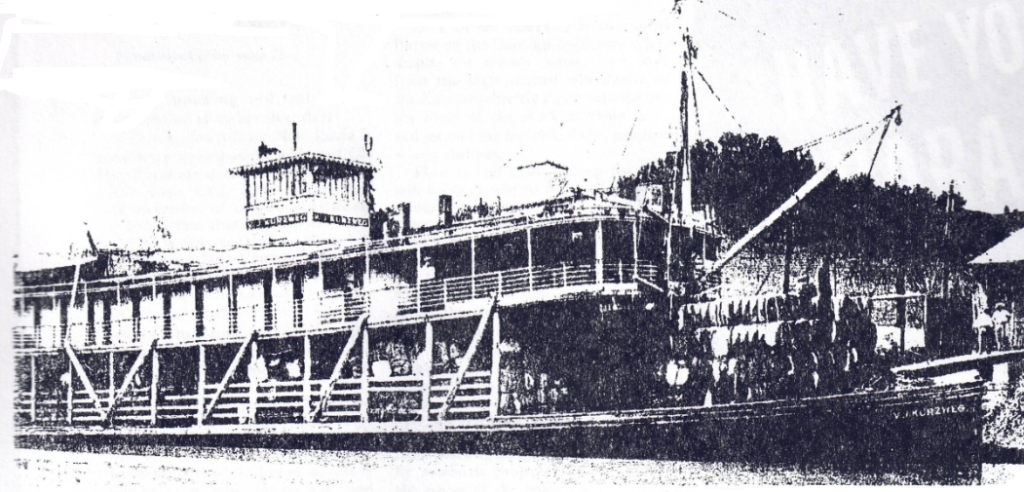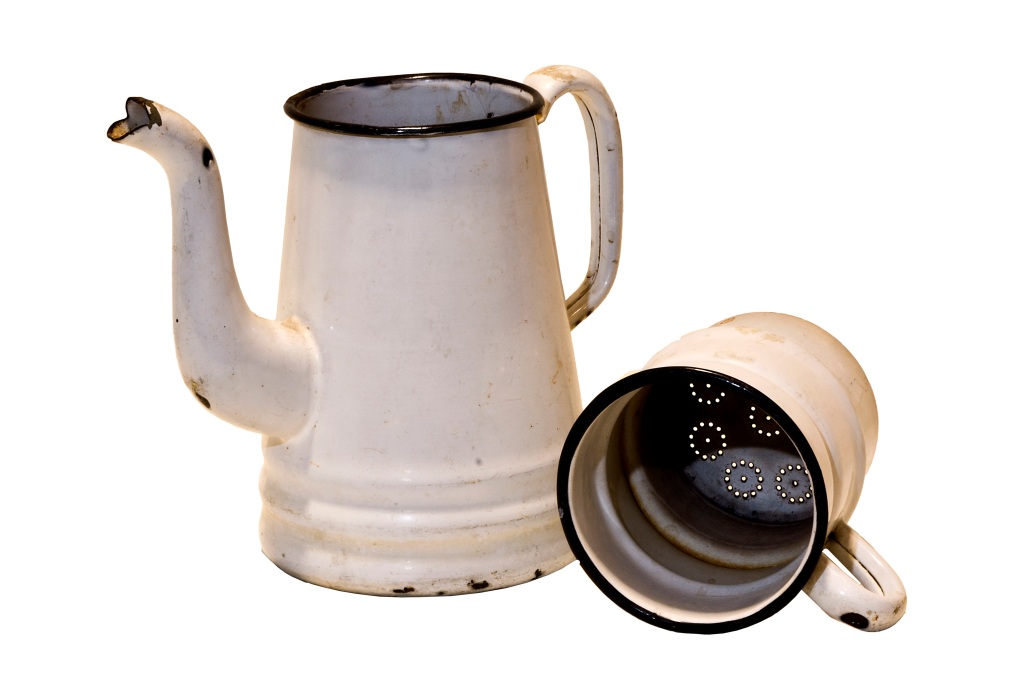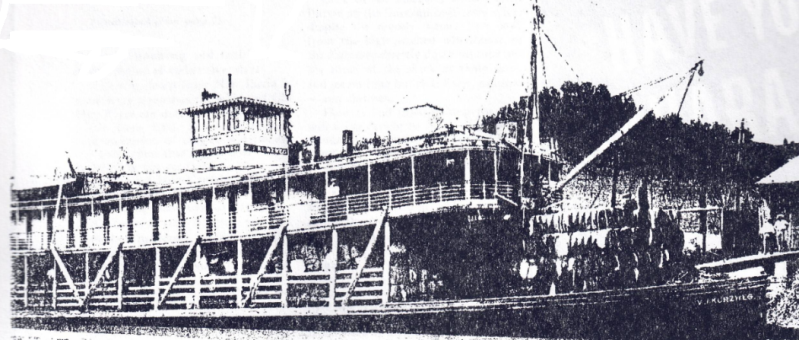
Image from C. S. Boyles, “Last of the Packets,” Holland’s Magazine, 1936.
For one hundred and thirty years, steamboats navigated the Mississippi River and Louisiana’s bayous, providing reliable transportation of cargo and passengers. Despite their size, these riverboats were able to maneuver quickly, making the steamboat ideal for Louisiana’s snakelike bayous.
One Plaquemine company that utilized steamboat transportation was Consolidated Companies Inc.

Image from Round the Bend to Another 50 Years, 1951.
It began as a retail grocery store, located on the corner of Railroad Avenue and Plaquemine St., but developed into a wholesale food distributor under the guidance of Victor J. Kurzweg. In 1925, Kurzweg ordered the construction of a new riverboat that became the first of its kind. The V. J. Kurzweg was a steel hull river packet built by the Canulette Shipbuilding Co. in Slidell, LA, but what set this boat apart from others was its diesel engine. Its oil-burning engine was the pride of the crew, replacing the wood-burning and coal-burning steam engines of the past.

Image from Iberville Museum’s Permanent Collection, IM.2000.001.02.
The V. J. Kurzweg was 155 feet long, 32 feet wide, and drew 5.7 feet of water. It was operated by a stern paddlewheel, similar to the steamboats, which allowed for deftly maneuvering. At all its stops, onlookers referred to the Kurzweg as “a cow without its horns” because it lacked the smokestacks of a steamboat.
The boat made several summer trips to St. Louis, Missouri and traveled weekly from New Orleans to New Iberia. The voyage typically began in New Orleans, traveling up the Mississippi and stopping at the Consolidated Company Inc. branches in Lutcher and Donaldsonville before arriving in Plaquemine. Once the boat arrived in Plaquemine, the crew would scramble to find beer and cigarettes, while passing through the locks. It would then travel down Bayou Plaquemine into Grand River. From Grand River, the boat connected with Bell River, then Bayou Long, and Flat Lake, stopping in Morgan City before it continued up the Atchafalaya River and into Bayou Teche. Once it reached Bayou Teche, the boat stopped in Franklin and Jeanerette until it reached its final destination of New Iberia. Here, the crew restocked its cargo and headed back to New Orleans before the week’s end.

The cargo crew for this paddle-wheeler was predominantly black. C. S. Boyles, Jr., traveling on the Kurzweg in 1936, noted: “Sixteen Negros are carried as regular cargo crew. .. Extra ‘hands’ are picked up by advance arrangement at each landing, help to do the loading and unloading, and go back to wait another week.” African Americans have operated as riverboat crews since the early 1830s. During the Antebellum period, riverboat owners most commonly used slaves as their crews throughout the south.
According to Boyles, in addition to the cargo crew, three black women ruled over the boat’s galley. One of the women was named Carrie and she prepared the meals for the crew. For breakfast, an assortment of eggs, fried ham, grits, rice, cereal, syrup, hot biscuits, and drip coffee was served, and for dinner, the crew was provided with smothered chicken, boiled pork, sausage, beans, corn, more rice, French bread, beets, spaghetti with “wop” cheese, ice cream, cake, and thick coffee.

The V. J. Kurzweg was operated during the decline of the paddlewheelers. In 1936, the boat’s captain, Captain Blackman, predicted the Kurzweg may run another two years. He recalled, “[In the early 1900s,] the river traffic [was] so heavy, the woods echoed with the whistles the clock round!” However, by the 1930s, Blackman claimed he was the sole captain of a river packet on a regular schedule with freight and passengers out of New Orleans. The boat was eventually retired in 1943, which some argue was partially due to World War II rationing. It was later dismantled for parts.
Sources:
Bernard, Shane K. Teche: A History of Louisiana’s Most Famous Bayou. Jackson, MI: University Press of Mississippi, 2016.
Boyles, C. S., Jr. “The Last of the Packets.” Holland’s Magazine, 1936.
Buchanan, Thomas C. Black Life on the MIssissippi: Slaves, Free Blacks, and the Western Steam Boat World. University of North Carolina Press, 2004.
Kurzweg, Frank Turner. “The Story of V. J. Kurzweg.” Frank Turner Kurzweg, ca. 2000.

